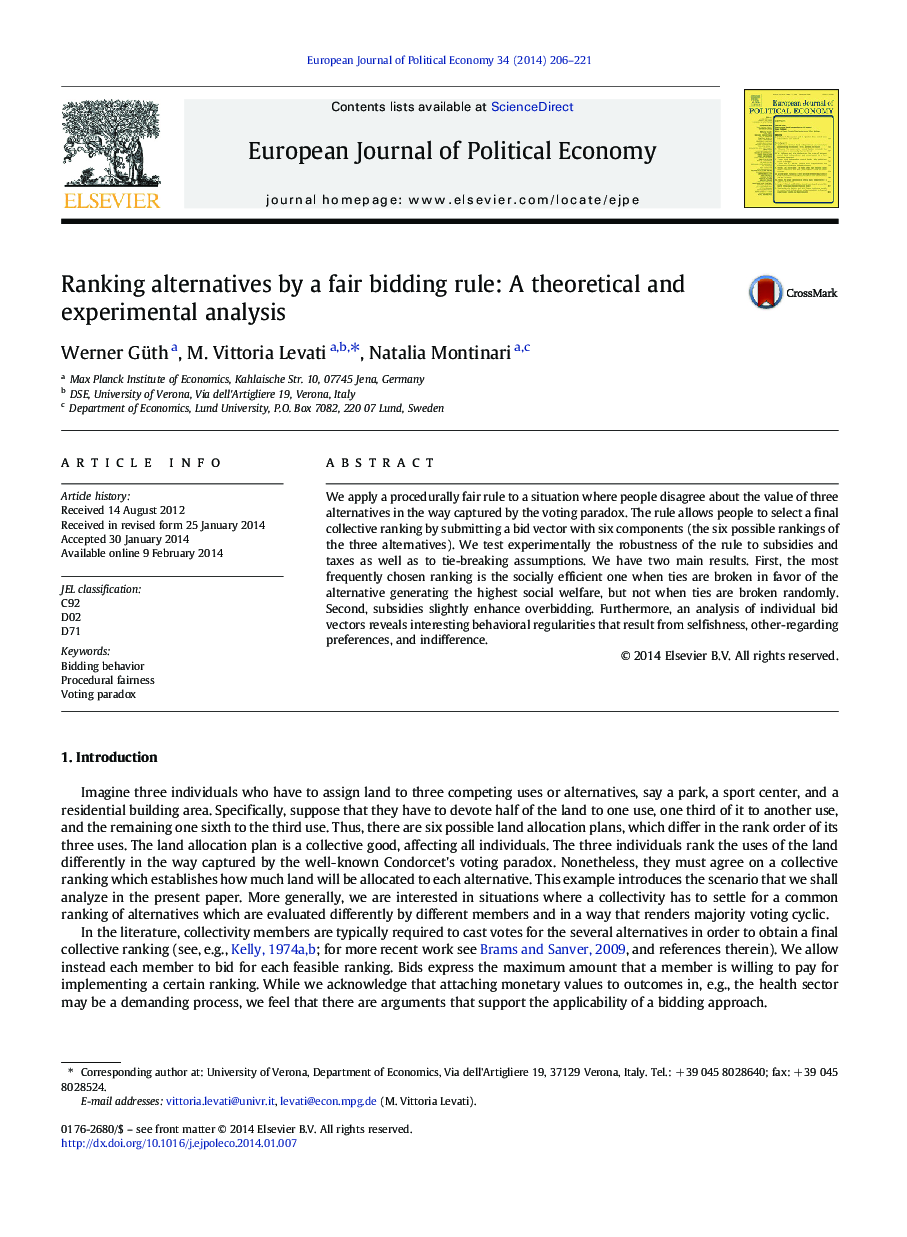| Article ID | Journal | Published Year | Pages | File Type |
|---|---|---|---|---|
| 5068100 | European Journal of Political Economy | 2014 | 16 Pages |
â¢We consider situations where a collectivity must agree on how to rank alternatives.â¢We propose a rigorously defined and procedurally fair bidding rule.â¢We test the robustness of the rule to subsidies, taxes, and tie-breaking assumptions.â¢People tend to choose the ranking that generates the highest social welfare.â¢Less groups select the social efficient alternative under random tie-breaking.
We apply a procedurally fair rule to a situation where people disagree about the value of three alternatives in the way captured by the voting paradox. The rule allows people to select a final collective ranking by submitting a bid vector with six components (the six possible rankings of the three alternatives). We test experimentally the robustness of the rule to subsidies and taxes as well as to tie-breaking assumptions. We have two main results. First, the most frequently chosen ranking is the socially efficient one when ties are broken in favor of the alternative generating the highest social welfare, but not when ties are broken randomly. Second, subsidies slightly enhance overbidding. Furthermore, an analysis of individual bid vectors reveals interesting behavioral regularities that result from selfishness, other-regarding preferences, and indifference.
